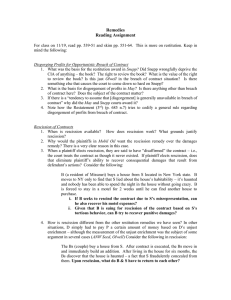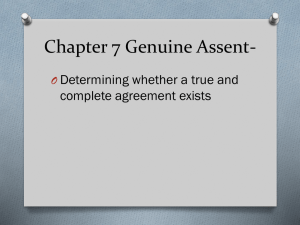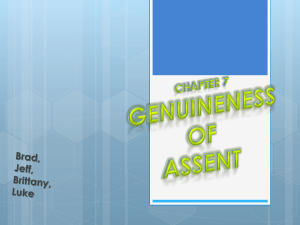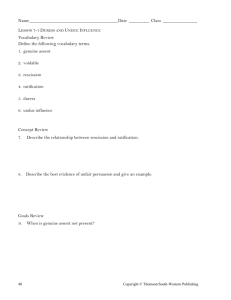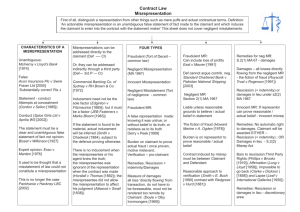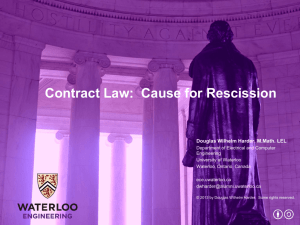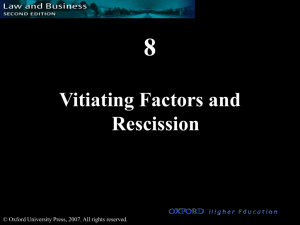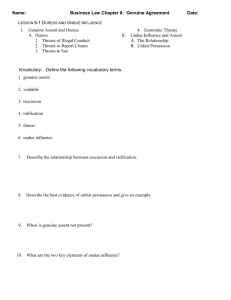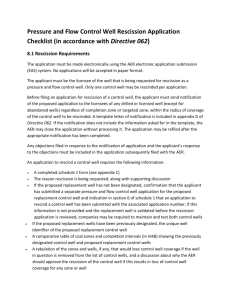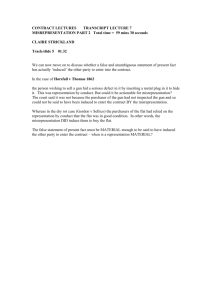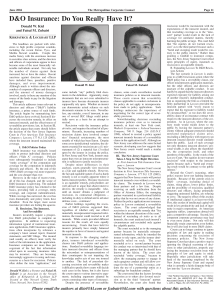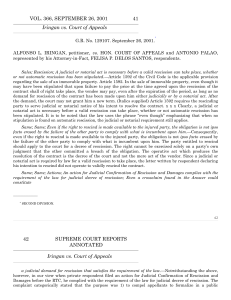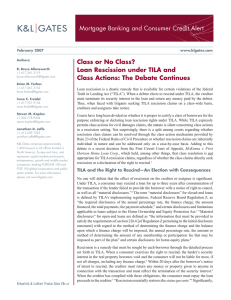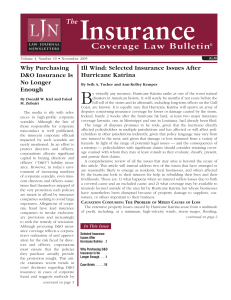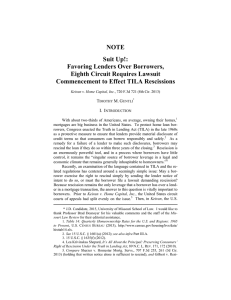Transcript of this slide
advertisement
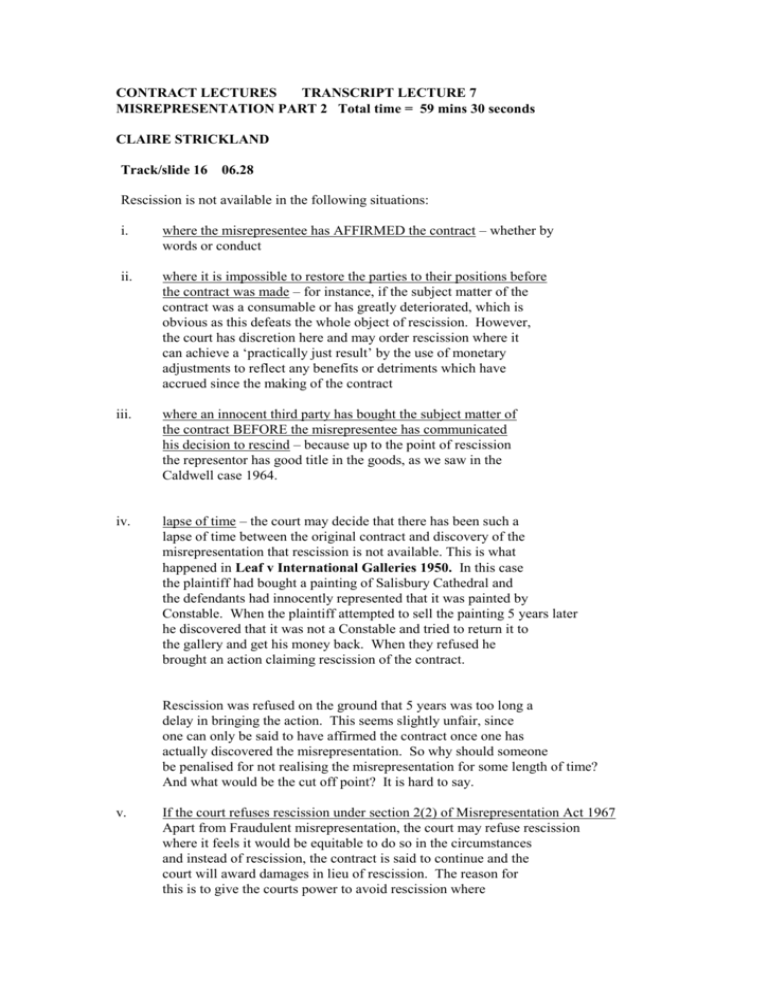
CONTRACT LECTURES TRANSCRIPT LECTURE 7 MISREPRESENTATION PART 2 Total time = 59 mins 30 seconds CLAIRE STRICKLAND Track/slide 16 06.28 Rescission is not available in the following situations: i. where the misrepresentee has AFFIRMED the contract – whether by words or conduct ii. where it is impossible to restore the parties to their positions before the contract was made – for instance, if the subject matter of the contract was a consumable or has greatly deteriorated, which is obvious as this defeats the whole object of rescission. However, the court has discretion here and may order rescission where it can achieve a ‘practically just result’ by the use of monetary adjustments to reflect any benefits or detriments which have accrued since the making of the contract iii. where an innocent third party has bought the subject matter of the contract BEFORE the misrepresentee has communicated his decision to rescind – because up to the point of rescission the representor has good title in the goods, as we saw in the Caldwell case 1964. iv. lapse of time – the court may decide that there has been such a lapse of time between the original contract and discovery of the misrepresentation that rescission is not available. This is what happened in Leaf v International Galleries 1950. In this case the plaintiff had bought a painting of Salisbury Cathedral and the defendants had innocently represented that it was painted by Constable. When the plaintiff attempted to sell the painting 5 years later he discovered that it was not a Constable and tried to return it to the gallery and get his money back. When they refused he brought an action claiming rescission of the contract. Rescission was refused on the ground that 5 years was too long a delay in bringing the action. This seems slightly unfair, since one can only be said to have affirmed the contract once one has actually discovered the misrepresentation. So why should someone be penalised for not realising the misrepresentation for some length of time? And what would be the cut off point? It is hard to say. v. If the court refuses rescission under section 2(2) of Misrepresentation Act 1967 Apart from Fraudulent misrepresentation, the court may refuse rescission where it feels it would be equitable to do so in the circumstances and instead of rescission, the contract is said to continue and the court will award damages in lieu of rescission. The reason for this is to give the courts power to avoid rescission where rescission might be too ‘drastic’ a remedy – for instance if it seems too harsh for an innocent misrepresentation.
